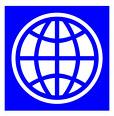World Bank’s Role in Fuelling Climate Chaos

Friends of the Earth International
PRESS RELEASE
Report Reveals World Bank’s Role in Fuelling Climate Chaos
BONN [GERMANY], June 11, 2011 – A new report released today by Friends of the Earth International during the UN climate talks in Bonn this week shows that the World Bank Group has been increasing its investments in fossil fuels and promoting corporate-led false solutions to climate change, including carbon trading, that serve to deepen rather than alleviate the current environmental crisis.
The report, ‘Catalysing Catastrophic Climate Change’, follows widespread concerns voiced by developing countries about the growing role of the World Bank in delivering climate finance.
The report shows how the Bank’s dirty fossil fuel financing is on the rise, locking countries such as India and South Africa into an even greater reliance on coal. Furthermore, the Bank is driving the expansion of carbon markets, an escape hatch for rich industrialised countries from cutting their emissions, whilst causing ecological damage and the displacement of communities in the global South. And despite negative environmental, social, and climate change impacts, the World Bank is significantly scaling up support for large hydropower.
Despite the Bank’s lending for highly unsustainable projects around the world, it is seeking an influential role in the UN’s new Green Climate Fund and in mechanisms to reduce emissions from deforestation and forest degradation (REDD).
Friends of the Earth International Economic Justice Program Coordinator Sebastian Valdomir said:
“The World Bank is part of the climate problem, not the climate solution. Its conflicts of interest, and appalling social and environmental track record, should immediately disqualify it from playing any role whatsoever in designing the Green Climate Fund, and in climate finance more generally.”
The World Bank has been accused of having a conflict of interest with regards to serving as both the interim trustee of the Green Climate Fund (fiduciary function) and on the Technical Support Unit designing the fund (consultancy function). In effect, the Bank would be designing a fund that is meant to oversee its own activities.
The World Bank’s fossil fuel lending practices and propagation of false solutions to climate change, such as carbon trading and large dams, should lead to its exclusion from any role in designing the UNFCCC’s Green Climate Fund.
Friends of the Earth International calls for climate finance that is derived from assessed budgetary contributions and other non-market-based innovative sources – like financial transaction taxes – that is commensurate with rich countries’ disproportionate role in creating the problem of climate change.
Policy Analyst at Friends of the Earth United States Kate Horner said:
“The World Bank claims to provide leadership on climate change but, as shown in this report, it is a major funder of dirty fossil fuel projects, carbon trading and mega dams. These initiatives deepen poverty and push us closer to the brink of a global environmental disaster.”
NOTES TO THE EDITORS
[1] The report shows that in 2010 the Bank hit a new record in terms of its fossil fuel funding, totaling US$6.6 billion, a 116% increase over 2009. US$4.4 billion of this total was invested in coal, also a record high, and a 356% increase over the previous year.
[2] The World Bank’s private lending arm, the IFC, approved investment of US$450 million for the Tata Mundra 4,000-megawatt coal-fired power plant in Gujarat, India, which is expected to emit an estimated 25.7 million tons of CO2 annually for at least 25 years.
In April 2010, the World Bank also approved a massive US$3.75 billion loan, the overwhelming majority of which will finance the 4,800 megawatt Medupi coal-fired power plant being built by Eskom, South Africa’s state-owned power utility. The loan will lead to 40 new coalmines opening up to feed the Medupi plant and related projects. South Africa is currently responsible for 40% of all of Africa’s greenhouse gas emissions, and this loan will add to these emissions.
[3] The World Bank has been increasing investment in large hydropower since 2003, following a lull in such investment in the 1990s, despite that dams have already displaced 40–80 million people.
[4] The World Bank’s Climate Investment Funds (CIFs) include a Pilot Program for Climate Resilience (PPCR), which allows for loans for adaptation, unlike UNFCCC funds and the Adaptation Fund, which has recently led to protests in Nepal and Bangladesh.
[5] The English version of the report can be found at: http://www.foei.org/en/resources/publications/pdfs/2011/world-bank-catalysing-catastrophic-climate-change/ The Spanish version of the report can be found at: http://www.foei.org/es/recursos/publicaciones/pdfs-por-ano/2011/banco-mundial-catalizador-del-cambio-clima301tico-devastador/
[6] Key findings from the report will be presented at a side event at the UNFCCC climate talks in Bonn, Germany on Saturday 11 June: 18:15—19:45, WIND, Ministry of the Environment building.
CONTACTS:
Sebastian Valdomir – International Coordinator, Economic Justice Programme, Friends of the Earth International (Spanish and Portuguese, based in Uruguay,) Mobile: +598 98 965 135, [email protected]
Kate Horner – Climate Justice Policy Analyst, Friends of the Earth US (English only, available at UNFCCC talks in Bonn) Mobile: +13 603 199 444, [email protected]
Sarah-Jayne Clifton – International Coordinator, Climate Justice & Energy Programme, Friends of the Earth International (English only, based in the UK) Mobile: +44 7912 406510, [email protected]

